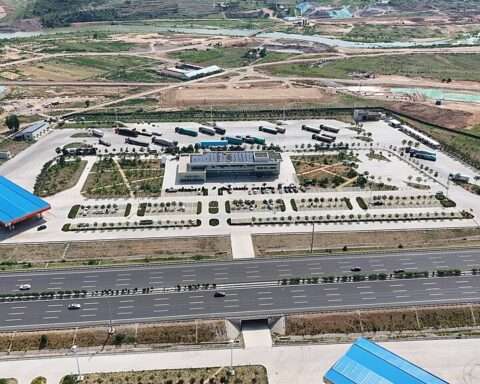The state of Connecticut has approved its $55.8 billion biennial budget, outlining $27.2 billion for fiscal year (FY) 2026 and $28.6 billion for FY 2027.
The budget outlines a total of $8.7 billion slated for capital improvement projects over the next two years. Priority sectors highlighted as beneficiaries of the state’s capital plan include:
- Transportation.
- State and Municipal Infrastructure.
- K-12 Education.
- Climate Resilience and Energy.
- Economic Development.
- Housing.
- Information Technology.
Transportation will receive the majority of capital budget spending – $3.1 billion – to put toward projects and programs. The funding will enable the state to improve its transportation infrastructure, investing a significant portion into the statewide Fix-it-First program to repair bridges and roads. Additional initiatives include bridge improvement, rehabilitation and replacement projects, environmental compliance efforts, connectivity and mobility programs and support for bus, rail and departmental facilities.
Almost $1.4 billion will be spread across state and municipal infrastructure projects and programs, including $381 million for a series of municipal grant programs. The budget dedicates funding to build a new Whiting Forensic Hospital, multiple courthouses, an archive facility for the state library and replace the Capital Area System heating and cooling loop. The budget also outlines various projects to alter, renovate or improve state-owned buildings.
K-12 education will receive $1.2 billion to execute infrastructure construction projects. Most of that funding – approximately $1.1 billion – will go toward new school construction authorizations. Additional budget-financed projects include building a new Windham Technical High School, building a new Vinal Technical High School, supplementing districtwide facility improvements and providing support for education service center and technical high school systems.
Investments in climate resilience and energy programs and projects tally up to $1.1 billion. This includes an $858 million injection into the state’s Clean and Drinking Water Fund alongside additional investments to support local communities and address flood control, dam repairs and per- and polyfluoroalkyl substance, or PFAS, testing for water supplies. Efforts will also include construction at state parks and recreation facilities, multimodal transportation grant programs, advancing microgrid and resilience grant pilot programs and greenhouse gas emissions reduction initiatives.
The state notes a $1 billion allocation for economic development, targeting brownfield remediation efforts, manufacturing sector support and projects to repurpose vacant and underutilized commercial spaces. Additional development investments will include providing grants and capital improvements for museums and advancing workforce training programs.
Image by kristen610 from Pixabay













